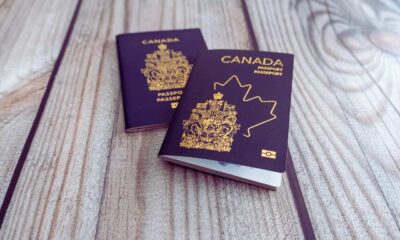Immigration Announcement
Canada Met Its Francophone Immigration Target for 2022 – Welcomed French-Speaking Immigrants

French is the first official language for an increasing number of Canadians, however, the percentage of French-speaking Canadians decreased from 2016 to 2022 (22.2% to 21.4%). In the paper “Meeting our Objectives: Francophone Immigration Strategy” published in 2019, the IRCC stated the target of 4.4% of French-speaking immigrants outside of Quebec by 2023.
The Hon. Sean Fraser, Minister of Immigration, Refugees and Citizenship Canada (IRCC), Marie-France Lalonde, Parliamentary Secretary to the Minister, and Marc G. Serré, Parliamentary Secretary to the Minister of Official Languages, made the announcement in Sturgeon Falls on January 23rd, stating that Canada had met the 4.4% target by 2022.
Canada is Continuing Its Work on Francophone Immigration Outside Quebec
The number of francophone immigrants to Canada in 2022 was at its highest level since 2006. In 2006, there were slightly more than 2,800 Francophone residents living outside of Quebec, accounting for 1.38% of immigrants. More than 16,300 new immigrants arrived in Canada’s francophone minority communities in the last year, an increase of 3.02% from 2006.
Since Canada started keeping track of immigration data, this represents the largest group of French-speaking immigrants outside of Quebec. The number of permanent residents who identify as Francophone has grown by 42,470 over the past five years, with annual immigration rates growing. As a result, Canada has not only met its goal but also admitted more immigrants than it did in 2018—more than three times as many.
Strengthening Support For Newly Arrived Francophone Immigrants
By achieving this goal, Canada demonstrates its support for building the power of francophone minorities outside of Quebec and its appreciation for the significance of newly arrived francophone immigrants in the nation. The promotion of the French language by the newcomers adds to the variety of Canada’s linguistic and cultural landscape, and their efforts to address the nation’s labour shortages help the economy grow.
Through its commitment to fostering population growth and economic success, the Canadian government will continue to place a high priority on Francophone immigration outside of Quebec in the future years. The Canadian government provided $40.7 million through the Action Plan for Official Languages 2018-2023 for activities promoting the immigration of francophone immigrants. As the Honorable Ginette Petitpas Taylor, Minister of Official Languages also mentioned during the announcement about a new Francophone immigration policy, outlined in Bill C-13. The policy will be introduced to ensure the perpetuation of the French language in the country.


























